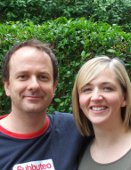Pilgrims
Huw Williams | 17:51, Sunday 09 March, 2014 | Turin, Italy
You don't have to know me very well (or indeed read this blog very much) to know that I am passionate about the music of Vaughan Williams (RVW). This past week I've been listening almost constantly to his opera (or "Morality" as he preferred to call it) version of "The Pilgrim's Progress". It is a remarkable work in so many different ways.
I am fascinated as to why an atheist-turned-agnostic like RVW should be so fascinated with Bunyan's book for most of his long life. Vaughan Williams' own setting occupied him on an off for decades - at one point giving up hope of ever completing it, and using its best material to produce his greatest symphony.
But for me, what is most startling is how brightly Bunyan's vision shines through the whole four acts of the work. The composer was confident enough of his understanding of the book to produce his own libretto and did a wonderful job, from the Pilgrim's arrival at The House Beautiful:-
"He hath given me rest by his sorrow and life by his death."
to his final words before entering the Celestial City:-
"Preserve me, O Lord, from the deep waters,
lest the billows go over my head,
let not the waves go over me,
let not the water flood drown me,
neither let the deep swallow me up."
Vaughan Williams captures the spirit of Bunyan's classic wonderfully. He always was a composer who knew how to start and how to finish (- we preachers should take note!) and these are some his masterstrokes in this work too - just as it opens with Bunyan in prison penning the closing words of his book, so the work closes with Bunyan - still imprisoned - and giving the invitation to his audience:-
"...This book will make a traveller of thee,
If by its counsel thou wilt ruled be.
It will direct thee to the Holy Land.
If thou wilt its directions understand.
O, then come hither,
And lay my book, thy head and heart together."
It makes for as bold a statement as is heard in any theatre today, as was when it was first performed in 1951. And it makes for an evening well spent any time.
Document Actions


